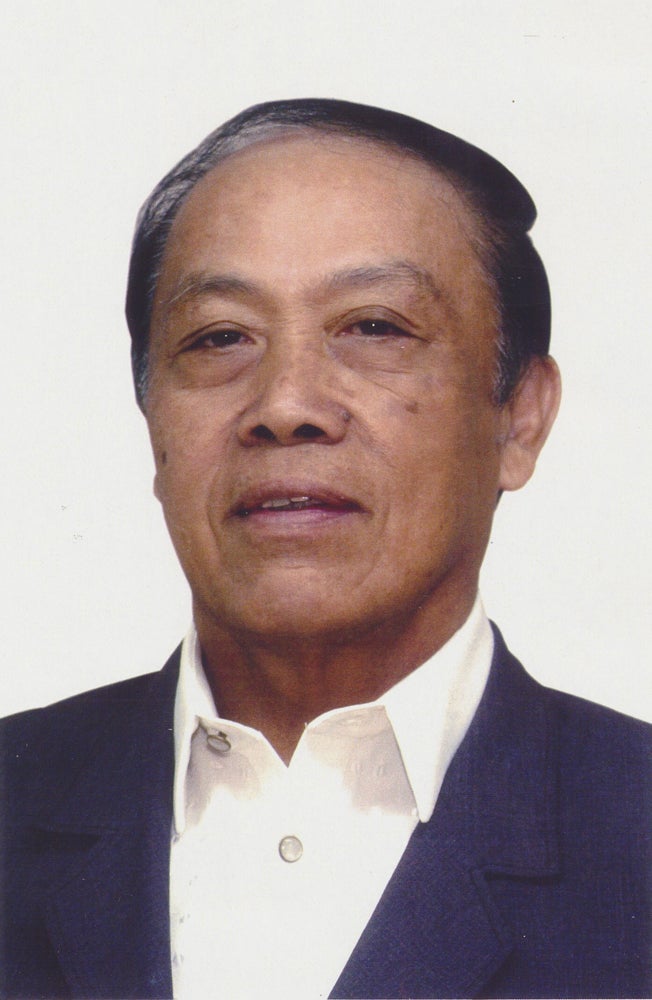WALA LANG
Steadfast and faithful civil servant Manuel S. Alba passed away this year, distinguished son of his native Iloilo and of the country he served. He had transferred to Diliman from University of the Philippines (UP) Iloilo and we met in our junior year at the College of Business Administration, classmates in B.A. 101 under the young instructor Cesar E.A, Virata. Being both accounting majors, we were classmates in just about all classes in the next two years, graduating B.S.B.A. with honors and Pan Xenia fraternity brothers in 1957.
Our career paths were initially parallel, then leading to different directions but frequently intersecting. We were both invited to join the B.A. faculty by then Dean Jose Velmonte, starting out as assistant instructors together with Gerardo P. Sicat, who had majored in economics in the College of Liberal Arts. As newbies, we three became close friends.
We were all assigned to teach Economics 11, where presumably we would do the least harm. Alba and I took and passed the CPA examination during our first year of teaching and the following year we were both approved for 12-month training slots by the US Mutual Security Agency (later USAID). Alba went to the University of Minnesota and completed his M.B.A.; I went to Georgia Institute of Technology where I graduated M.S. in Industrial Management; and Sicat went on for his Ph.D. at Massachusetts Institute of Technology. Later, on Ford Foundation grants, Alba was sent by Cesar Virata, who by then was college dean, to Northwestern University’s Kellogg School of Business to work for a Ph.D. while I went to Stanford University. Alba’s Ph.D. dissertation was considered one of the best in the US of his year.

We all returned to the university on completion of our respective doctorates. After a couple of years, Alba was seconded by UP to be executive director of the Presidential Commission to Survey Philippine Education (PCSPE), an initiative of President Ferdinand E. Marcos. The survey identified potential improvements in public education and led to the adoption of the Education Act of 1982. With the approval of the survey’s recommendations, the Educational Development Projects Implementing Task Force (EDPITAF) was formed and Alba was appointed executive director. He also served on the Board of the Fund for Assistance to Private Education (FAPE) before moving to the University of Hawaii as one of the directors of the University’s East West Center where he was for three years.
Meanwhile, Sicat had also been progressing up the academic and public service ladders. He was picked by President Marcos to be director-general of the National Economic and Development Authority (NEDA). Sicat persuaded Alba to return and join him at NEDA to be deputy director-general for policy and planning (1975 to 1981). I was then budget minister and in 1979 made a bid for Alba to join me. He was therefore concurrently deputy at NEDA and the Budget Ministry that Sicat and I thought was a good way of coordinating economic planning and government budgeting. Along the way Alba also served as board member of APO Production Unit that was originally organized as a printing plant under NEDA and that was for many years responsible for producing the national budget document. He was also on the board of Philippine Women’s Univerity.
In 1981 I left to head the Central Bank of the Philippines and Alba became budget minister. He was one of the appointed Assemblyman member of the Interim Batasang Pambansa, the legislative body designed to transition into a parliamentary system for the Philippines. He was automatically chair of the Batasan Committee on Appropriations.
Everything changed in February 1986 with EDSA One and Mrs. Corazon Aquino quickly and totally replaced the entire Marcos Cabinet. We said goodbye to government with modest GSIS benefits, a bit over ₱600,000 as a lump sum payment in my case after 29 years of service.
Alba returned to the UP College of Business Administration and resumed teaching business, finance, and accounting courses until he retired in 2009 at age 70. During part of his UP service, he was also Quezon City administrator under Ismael A. Mathay, Jr. who had been elected mayor (1992-2001). He continued as consultant to Mathay’s successor Feliciano R. Belmonte, Jr. until 2010 when he finally retired to lead a quiet life in Fairview, Quezon City, neighbor of former government colleagues Justice Efren Plana and information minister Gregorio Cendana.
In 2014, the UP Alumni Association acknowledged Alba’s work with a Lifetime Achievement Award and shortly before his passing this year, the Professional Regulatory Commission recognized him as one of the country’s top hundred CPAs from the time accountancy was formalized as a profession, through a “Centenary Award of Excellence.”
Manuel S. Alba was a civil servant of the old school—competent with training and experience in his field, honest, and hardworking. He passed away as frugally and modestly as did while living a life of honor and service to the Filipino people.
Comments are cordially invited, addressed to [email protected].